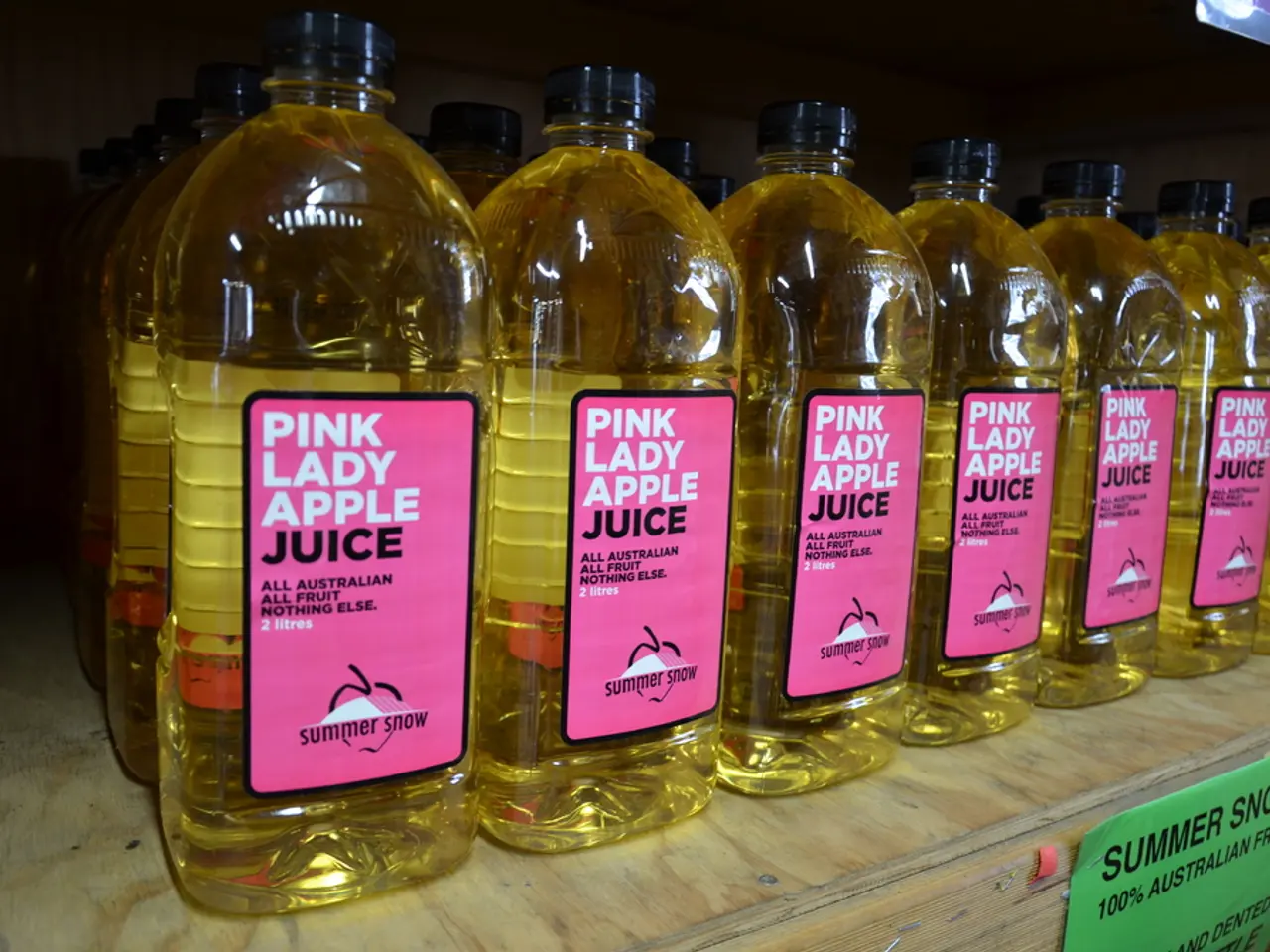Investigating the Efficiency of Cranberry Juice in Combating Urinary Tract Infections: Fact or Folklore?
A recent study suggests that consuming cranberry products, particularly those containing a specific active ingredient called proanthocyanidins (PAC), could help prevent urinary tract infections (UTIs) in certain individuals.
Research indicates that PAC, found in cranberries, makes it harder for E. coli and other bacteria to stick to the lining of the bladder, thus potentially reducing the risk of UTIs. Studies suggest that taking 36 milligrams (mg) of PAC per day can prevent UTIs, but more research is needed to determine how often this amount needs to be taken for it to be effective.
Cranberry products, such as juice or supplements, are not a substitute for antibiotics, which remain the first-line treatment for active UTIs. However, they can be used as a complementary preventive measure, especially for those prone to recurrent UTIs. In fact, studies suggest that cranberry products can reduce the risk of recurrent UTIs by about 26% in nonpregnant women and as much as 54% in children or patients undergoing urinary procedures.
The American Urological Association's guidelines on recurrent UTIs in women state that doctors may suggest using cranberry products to prevent UTIs, as they are low-risk. However, it's important to note that the evidence for treating active infections or long-term benefits is mixed and not conclusive.
When it comes to cranberry juice, consuming 100% cranberry juice is recommended for UTI prevention, as common cranberry juice cocktail is ineffective. A 2024 series of 10 clinical trials found that using cranberry products daily only significantly reduced the risk of UTIs when used continually for 12 to 24 weeks.
Cranberries are acidic and high in sugar, which could cause stomach upset and other symptoms. Therefore, it's advisable to talk to a healthcare provider before starting a cranberry supplement, especially if pregnant, breastfeeding, or taking medications like blood thinners, allergy medications, proton pump inhibitors, or statins. Cranberries should also be used with caution if you have kidney stones, diabetes, high cholesterol, interstitial cystitis, gastrointestinal issues like IBS, or are taking vaginal estrogen creams, rings, or tablets.
In addition to cranberry consumption, other prevention strategies for UTIs include peeing after sex, staying hydrated, wiping front to back when using the toilet, reducing the risk of diarrhea or constipation, limiting bladder irritants like caffeine, alcohol, and citrus fruits, and talking to a healthcare provider about vaginal estrogen creams, rings, or tablets if going through menopause.
In summary, while cranberry products may help prevent recurrent UTIs, especially in those prone to them, they are not proven treatments for active infections and should be used continuously for prevention rather than episodically. More research is needed to fully clarify optimal dosing, duration, and comparative effectiveness of juice versus supplements.
- Integrating health-and-wellness practices can potentially reduce the risk of urinary tract infections (UTIs); consuming cranberry products daily, particularly those containing proanthocyanidins (PAC), may lower the odds of recurrent UTIs by 26% in nonpregnant women and up to 54% in children or patients undergoing urinary procedures.
- Besides utilizing cranberry products, incorporating other strategies into one's health routine might aid in UTI prevention. These include peeing after sex, maintaining proper hydration, refraining from wiping back to front when using the toilet, and reducing bladder irritants like caffeine, alcohol, and citrus fruits.
- When considering incorporating cranberry supplements into a diet due to concerns related to UTIs, it's crucial to consult with a healthcare provider, especially for those who are pregnant, breastfeeding, or taking medications like blood thinners, allergy medications, proton pump inhibitors, or statins. Cranberries should be used carefully for individuals with kidney stones, diabetes, high cholesterol, gastrointestinal issues, or taking vaginal estrogen creams, rings, or tablets.








